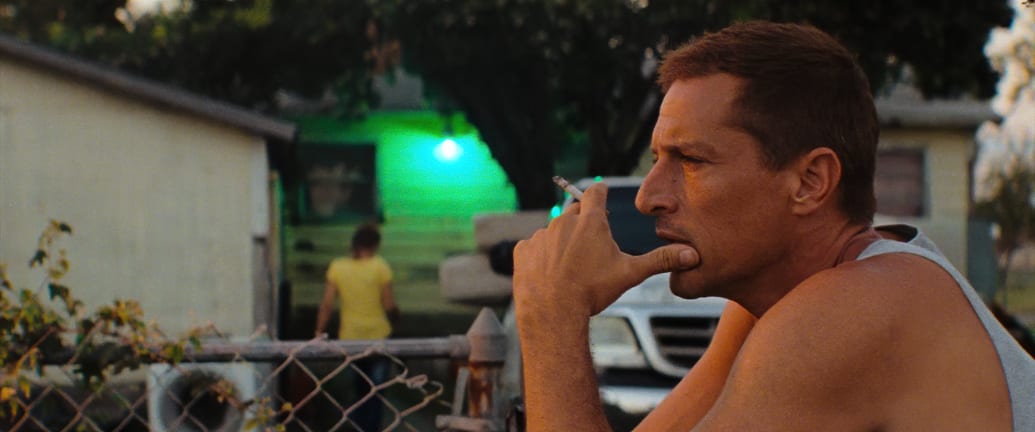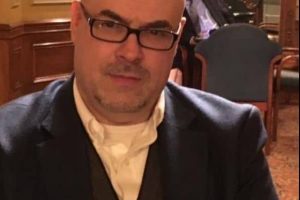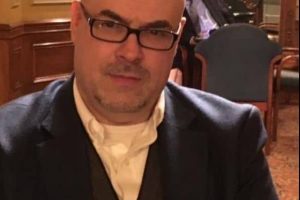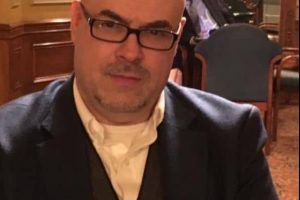Whether you already knew who Simon Rex was or not when you watched and doing WB sitcoms, and I never really had an opportunity to do [dramatic work]. I think with Red Rocket, people saw that [I could do it], and that led to me getting this job on Americana.
But it’s funny, because I’m still laughing at myself when I’m watching it. I’m like, “Oh my God, I’m so serious.” But I think it worked in this movie, and it was good for me to see that I can do it, and every single job you do is a learning experience. Now I’m looking for my next role that may require me to not be silly and funny.
After the critical success of Red Rocket, have you become more particular about the kinds of roles you want to take on? Or are you just down to do whatever’s fun?
I think it’s both. I always want to do fun stuff, but [I’m now] in a very unique situation that I’ve never been in before.
Normally as an actor, you have to wait for an audition, and you’re going up against 200 other guys, who are your age and look like you … and it’s a lottery in a lot of senses. That’s the grind. Now for the first time ever, [I] just get offers sent in.
But I really want to do everything [that’s] really different. Kind of like these two movies—I wanna do the really serious guy in Americana, then I want to be the outrageously insane comedy guy in Down Low.
I just shot—forgive my language, but this is the title of the movie—Pussy Island with Zoë Kravitz, who directed it. It’s with Channing Tatum, and it’s a big MGM movie. I have a supporting role in that, so that’s the big studio movie [I’m doing too].
The plan is to just keep doing insanely different shit and keep making people be like, “Whoa, I had no idea this was coming.”
Red Rocket was considered your big career resurgence. I feel like the comeback narrative has been popular lately. There’s a lot of talk about how Brendan Fraser and Ke Huy Quan, for instance, have had huge comebacks that led to their Oscar wins.
Do you feel as though the interest in actors’ comebacks has benefited your career, or are you eager to move away from that narrative?
It doesn’t bother me at all. The comeback narrative is fine, and I think that it wears off after a while.
But … I’ve always noticed that Americans love a comeback. I don’t know if other cultures around the world do this, but in America, we love to watch [people] fall, and then we love to watch them come back. … [The comeback narrative] is better than the alternative, which is just disappearing and not coming back at all.
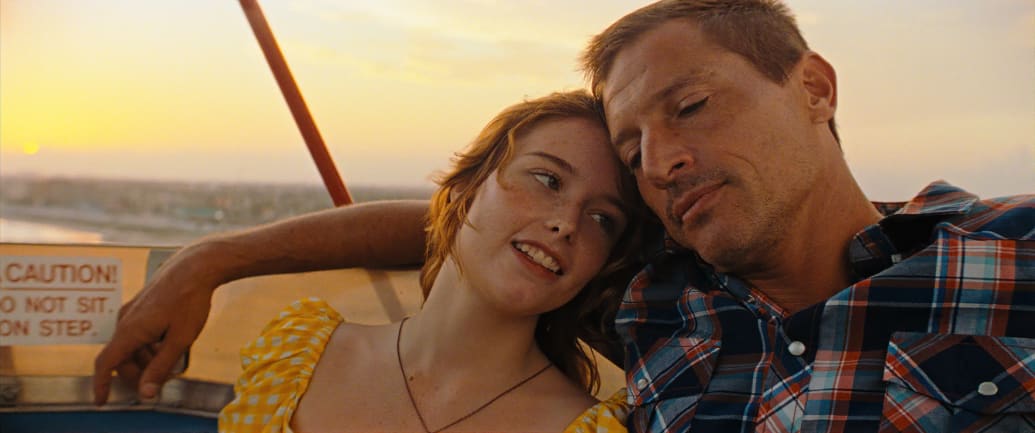
Rex and Suzanna Son in Red Rocket
A24
For me, I think I had to disappear, and I had to go through all the things I went through, and the struggles, and the darker times, to have something to pull from, to do these roles that I never would’ve got before.
Now that I’m older, I have a little more—it sounds really actor-y and lame—range and more depth and more things to pull from. Because before, when I was young, I was just happy go-lucky, and everything was fine. I was just skating on my youth, and nothing mattered, and I was just immature. And I’m still pretty immature. But I think … you gotta fail sometimes. I think that’s the juice, you know?
I think you’re right that Americans love to watch people triumph over adversity. At the Oscars, for example, there’s always that one actor that viewers think is getting the award because of their storyline.
Yeah, it’s true. It’s like a narrative outside of the movie itself. … Nowadays, with social media, you can really follow somebody’s life and their career, and it’s not as secretive as it used to be. There’s no more privacy, and we are involved in everyone’s life more than ever.
[Before social media,] you’d never see your favorite actor, know where they were, know what they’re doing—and now you just go on your phone and see where they’re eating. That mystery’s gone, and I think that’s indicative of our culture.It’s true that there’s no privacy anymore for anyone, especially for people in the public eye.
But there’s that great Vulture profile of you, from when Red Rocket came out, where you talked about living off the grid in the California desert. When you’re a celebrity, it seems like you shouldn’t be able to do something like that. How has living that way affected your career, as it’s growing again?
I moved out to the middle of nowhere in Joshua Tree right before the pandemic, in February, three years ago. I just threw in the towel after 20 years in LA, like, “I’m over this. I can’t do this LA grind anymore. If my career’s over, that’s okay. It was fun. Let me go explore something else.”
So I moved into a tiny shipping container in the middle of nowhere in the desert, with solar power, a water well, septic tank, and just 15 minutes of dirt road. And then Covid hit, and I was just sitting out in the middle of the desert, losing it a little bit, and that’s when Sean Baker called.
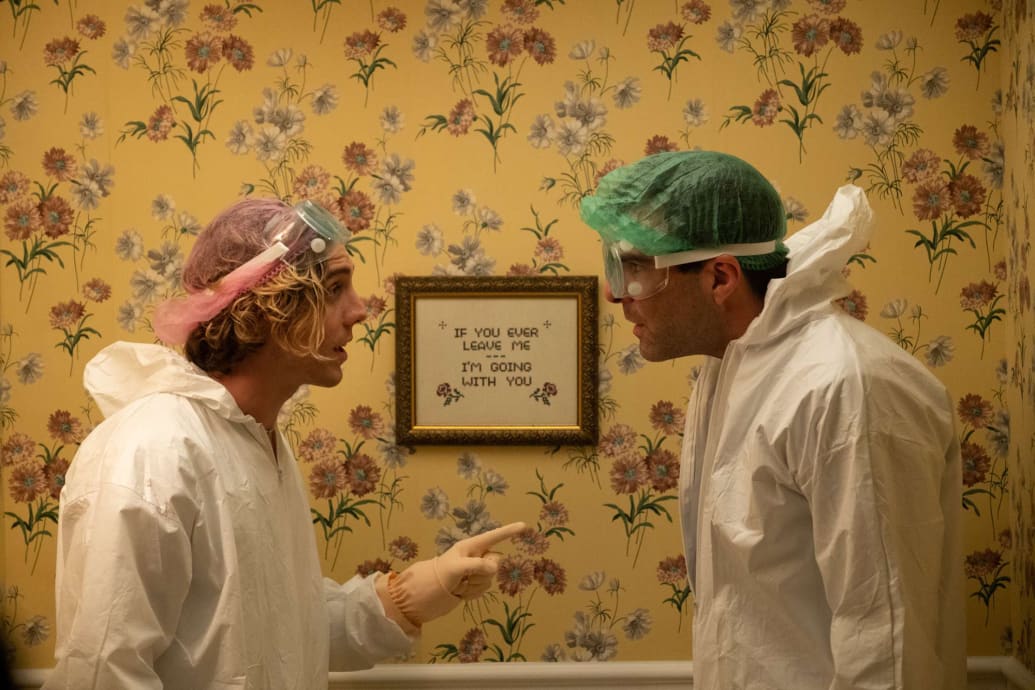
Lukas Gage and Zachary Quinto in Down Low
FilmNation Entertainment
I still live there when I’m not working, which is probably about a third of the year, because work has been good lately. It’s kind of the best, because I just go there to reset after the chaos of SXSW [for example] and shooting a movie. I’m also Pete Davidson’s roommate in New York… and it’s Brooklyn, New York craziness.
Today, I’m flying home, and I will just go sit in the silence and decompress and be like, “Okay, it’s all good.” You recalibrate. We’re not meant to live in the human zoo of the city, like New York, LA, film festivals. It’s so much energy coming at you. I love to just go back [to the desert] and chill the fuck out. And then after a while you get bored out there, and then you go back into the craziness. It’s the perfect balance.
Keep obsessing! Sign up for the Daily Beast’s Obsessed newsletter and follow us on Facebook, Twitter, Instagram and TikTok.







